Coronavirus: New restrictions in force for parts of West Midlands
- Published

The new restrictions affect about 1.6 million people across Birmingham, Sandwell and Solihull
New lockdown measures have come into force in the West Midlands after the number of coronavirus cases rose.
People in Birmingham, Sandwell and Solihull are banned from meeting others who are not part of their household or support bubble, in homes or gardens.
The restrictions, external affect about 1.6 million people and run alongside wider rules that came into force on Monday.
The council is asking the government for an exemption to rules around child care after parents raised the issue.
Michelle McDaid, from Solihull, who relies on her parents to help with childcare, said the rules were "frustrating".
Dr Justin Varney, from Birmingham City Council's public health department, said: "This... prevents family members providing childcare, and that is having significant impact on lots and lots of families."
Mr Varney said while they were not seeing any "clear evidence of spread within schools", the social side was causing transmission of the virus.
"Multiple children have gone to the same birthday party and are testing positive and that's leading to three or four bubbles in the same school having to be sent home to isolate," he said.
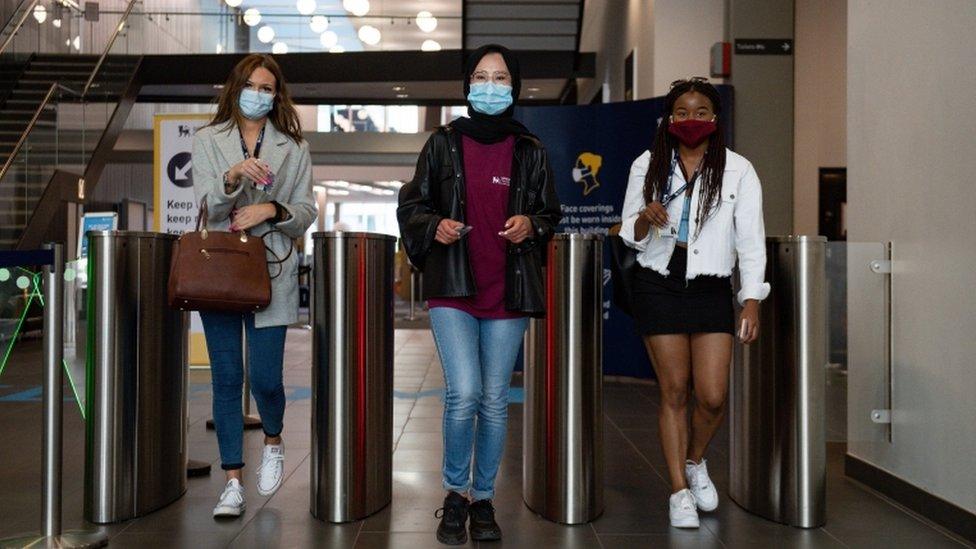
Students at Birmingham City University arrived for the start of term on Monday
West Midlands mayor Andy Street warned people they must comply with new restrictions or face even tougher measures.
"We will use these restrictions, look at how the numbers move, and if they are not sufficient, we might have to go further," Mr Street said on Sunday.
"Everybody now has to comply with these to give us the best chance."
Under the new rules, external, people are banned from meeting others who are not in their household or support bubble, indoors or in private gardens.
People can still go out to shops, restaurants and other venues, in a maximum group of six from more than one household, but the council told people to be "vigilant".
Birmingham residents react to new lockdown restrictions
West Midlands Chief Constable Dave Thompson said he understood it had been a "tough time", but urged people to act responsibly.
He said officers would aim to "educate and encourage compliance" with the restrictions and would focus efforts on "disrupting flagrant breaches, such as large gatherings".

Analysis
by Kathryn Stanczyszyn, BBC Radio WM political reporter
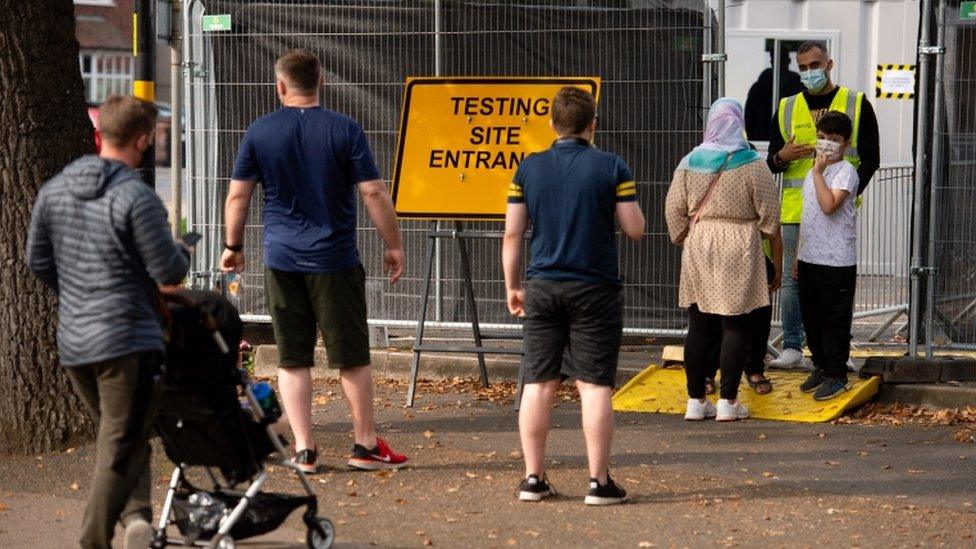
Childcare is one of the big issues of these new restrictions.
With a combination of people going back to work from furlough and schools facing Covid-related closures the last thing families need is the absence of grandparents too.
That's why all three councils are sending a letter to government asking for special exemptions for those who have essential childcare from family members.
No other area has received one yet, so it's far from guaranteed. In fact, it's believed the government originally wanted to be even stricter - so putting in place more caveats could be unlikely.
But with no clue of how long these rules will be in place, it's seen as one small solution in an increasingly complex picture when it comes to keeping the virus at bay.

Figures show the rate of cases per 100,000 in Birmingham to the week to 11 September was 82; for Solihull the figure was 71.2; and Sandwell stood at 64.2.
Prof Alan McNally, from the University of Birmingham, said the testing situation in the city was similar to the rest of the country.
"I think you almost have a perfect storm... events have come together to almost essentially crash the testing system," he said.
The leader of Wolverhampton Council, Ian Brookfield, advised residents not to mix households and to follow the guidance given to people in Birmingham, Sandwell and Solihull.
Mr Brookfield said "new evidence" from the test and trace teams at the council showed 90% of all transmission is "home-related".

SOCIAL DISTANCING: What are the rules now?
SUPPORT BUBBLES: What are they and who can be in yours?
LOOK-UP TOOL: How many cases in your area?


Follow BBC West Midlands on Facebook, external, Twitter, external and Instagram, external. Send your story ideas to: newsonline.westmidlands@bbc.co.uk , external
- Published14 September 2020
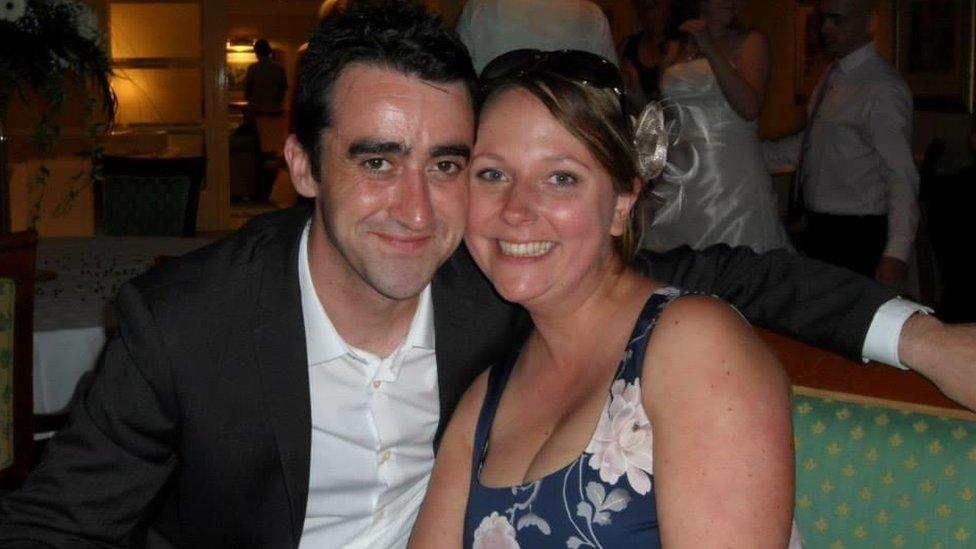
- Published25 January 2022

- Published13 September 2020
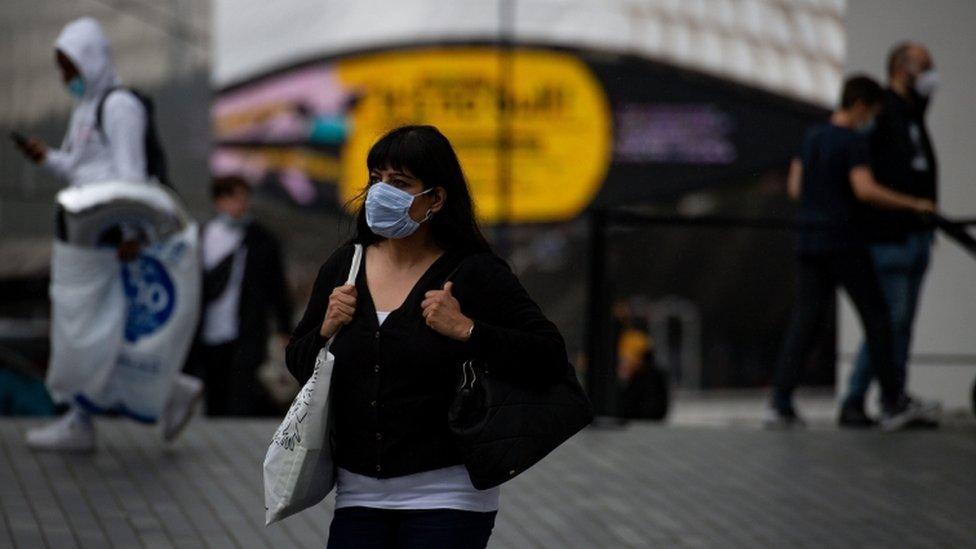
- Published11 September 2020

- Published11 September 2020
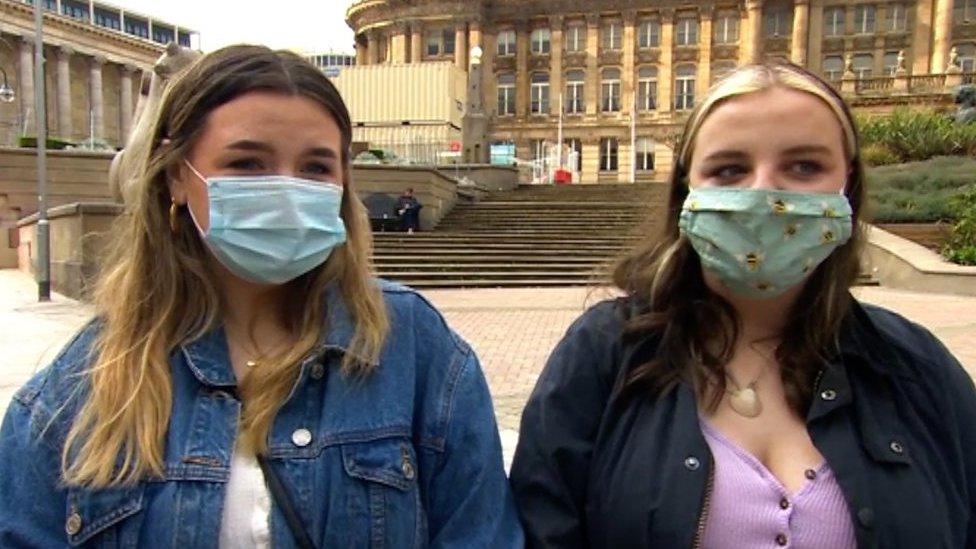
- Published9 September 2020
